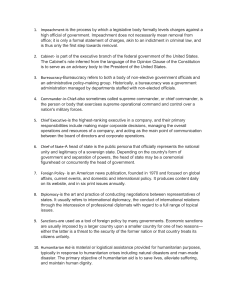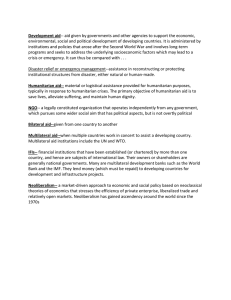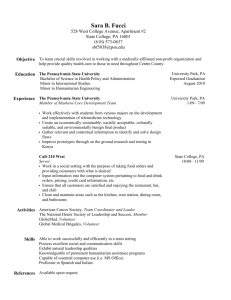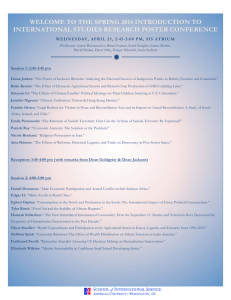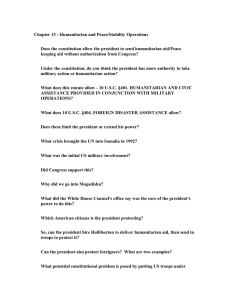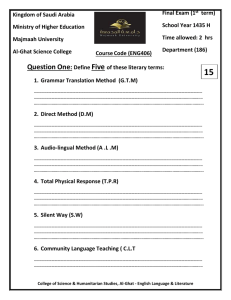In ethics there are five basic principles and they are the value of life principle.docx
advertisement
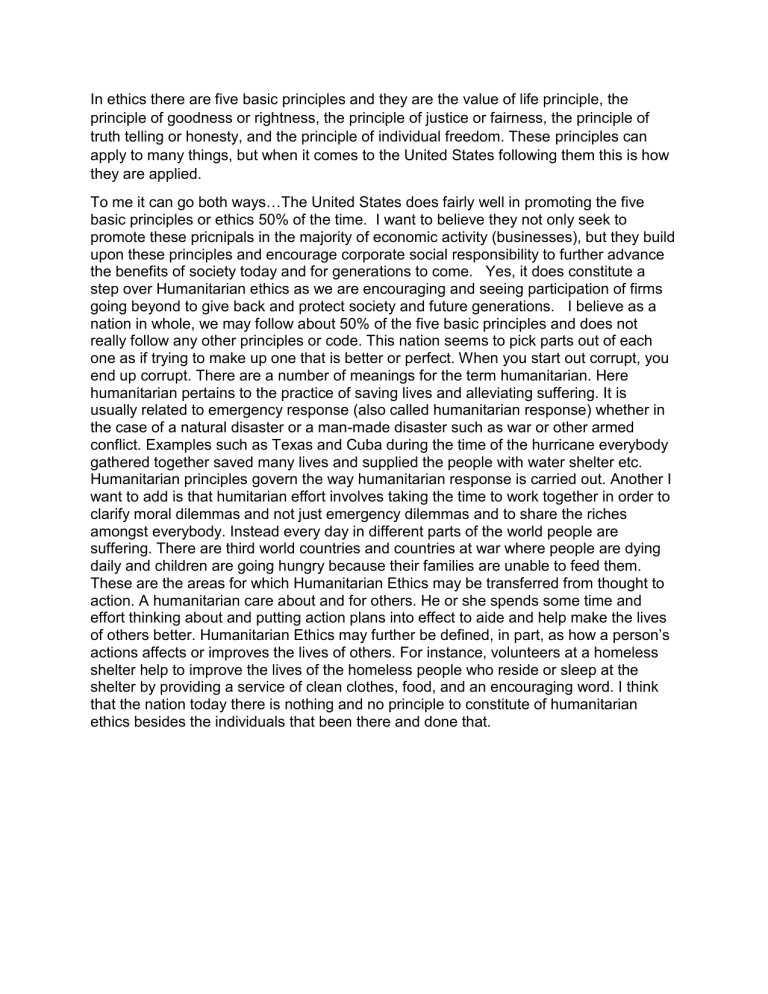
In ethics there are five basic principles and they are the value of life principle, the principle of goodness or rightness, the principle of justice or fairness, the principle of truth telling or honesty, and the principle of individual freedom. These principles can apply to many things, but when it comes to the United States following them this is how they are applied. To me it can go both ways…The United States does fairly well in promoting the five basic principles or ethics 50% of the time. I want to believe they not only seek to promote these pricnipals in the majority of economic activity (businesses), but they build upon these principles and encourage corporate social responsibility to further advance the benefits of society today and for generations to come. Yes, it does constitute a step over Humanitarian ethics as we are encouraging and seeing participation of firms going beyond to give back and protect society and future generations. I believe as a nation in whole, we may follow about 50% of the five basic principles and does not really follow any other principles or code. This nation seems to pick parts out of each one as if trying to make up one that is better or perfect. When you start out corrupt, you end up corrupt. There are a number of meanings for the term humanitarian. Here humanitarian pertains to the practice of saving lives and alleviating suffering. It is usually related to emergency response (also called humanitarian response) whether in the case of a natural disaster or a man-made disaster such as war or other armed conflict. Examples such as Texas and Cuba during the time of the hurricane everybody gathered together saved many lives and supplied the people with water shelter etc. Humanitarian principles govern the way humanitarian response is carried out. Another I want to add is that humitarian effort involves taking the time to work together in order to clarify moral dilemmas and not just emergency dilemmas and to share the riches amongst everybody. Instead every day in different parts of the world people are suffering. There are third world countries and countries at war where people are dying daily and children are going hungry because their families are unable to feed them. These are the areas for which Humanitarian Ethics may be transferred from thought to action. A humanitarian care about and for others. He or she spends some time and effort thinking about and putting action plans into effect to aide and help make the lives of others better. Humanitarian Ethics may further be defined, in part, as how a person’s actions affects or improves the lives of others. For instance, volunteers at a homeless shelter help to improve the lives of the homeless people who reside or sleep at the shelter by providing a service of clean clothes, food, and an encouraging word. I think that the nation today there is nothing and no principle to constitute of humanitarian ethics besides the individuals that been there and done that.
